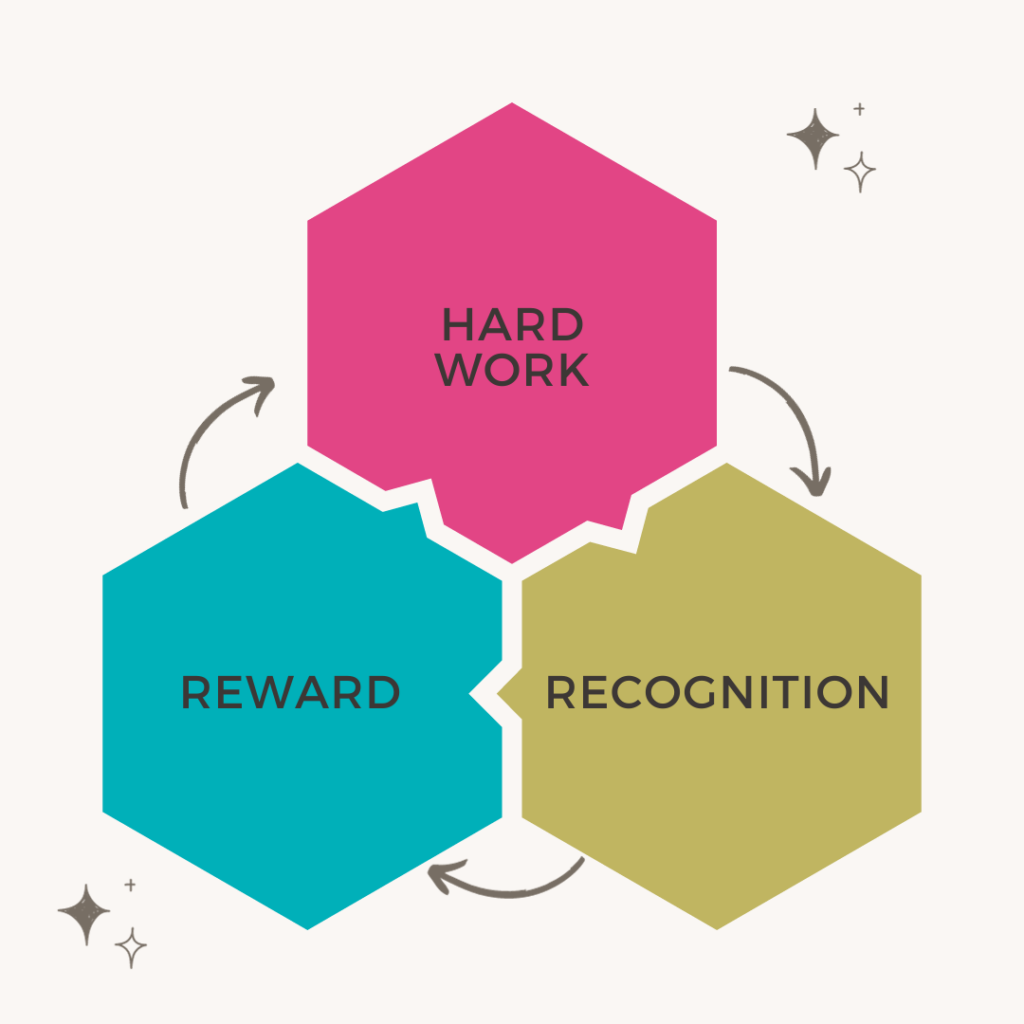Last week I conducted a networking workshop for a Fortune 500 company’s women’s conference on “Crafting your Elevator Pitch.”
A few women admitted they wanted to create an elevator pitch to gain visibility within and outside their current roles, to feel more comfortable in networking situations, and because they wanted a tool to advance themselves better.
Their premise was the same: if I do good work, I’ll get recognized, and then I’ll get rewarded. Except, it wasn’t happening. They weren’t receiving pats on the back like they did when they were in school under a watchful teacher’s eye.
Sound familiar?
Bright Stars
I suspect those women speaking to me at the conference were the brightest stars at school. Teachers rewarded them for insight, extra effort, or helping others with their homework. They got good marks, which reinforced that they were smart, and so it continued in a virtuous cycle of learning, recognition, and reward over the years.
I know because I was one of them.
When I say I “get it” it’s because I shared their experience. Having received that academic recognition, I believed it would work the same way in later life. Work hard – recognition – reward.

No Gold Star
Then I entered the workplace. And guess what? It didn’t work.
I did the same thing I did as a student. I worked hard and expected to get recognized for it.
In business, recognition and reward means getting placed on cross-functional teams, getting promoted, and receiving higher-than-average salary increases and bonuses.
Frustrated and resentful, I questioned why I didn’t receive my “gold star.” I provided good insight, which they call “analysis” in the business world, I put in above-average effort to do my job well, and I trained others on my subject matter so they felt confident in their skills.
Eventually, I figured it out.
- Managers are busy so they took my work for granted. Unless something went wrong, they didn’t invest time in noticing what was going right.
- Managers aren’t watchful teachers. In fact, many managers aren’t teachers at all, which is why companies hire externally. Their managers don’t or can’t train (“teach”) their teams.
And yet, my intent is not to blame them for not rewarding me. I had to turn inward and accept my role in this cycle.
My A-Ha Moment
I realized I was seeking external validation instead of finding it internally.
Every time a teacher/manager rewarded me, my cup filled with their recognition of myperformance. But in the absence of that person, who would fill my cup?
In truth, I’m the only one who could fill it.
My worth comes from within not without. Being dependent on external validation meant that I was basing my happiness – my success – on someone else telling me I’m smart. I didn’t need someone else validating my intelligence.
Making Connections
Going back to the women’s conference, I think these women were making that connection too. Once you accept your self-worth comes from within, you no longer need an outsider – like a teacher/manager – to tell you that.
Consequently, you become your own advocate. You don’t need to passively wait to get recognized like you did in school. Building your own elevator pitch becomes an exercise in self-empowerment. You decide your value and what you want to say instead of letting others do it for you. The part of the work hard – recognition – reward cycle I didn’t understand earlier in my life is the role of personal agency. Self-worth is internally driven. By choosing that viewpoint, I see myself as an active instead of passive agent. I don’t need to wait for a gold star. I can give it to myself.
Header Photo by Andrea Piacquadio

